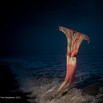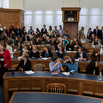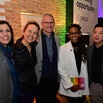Schell Center Fellow Spotlight: Marco Wan
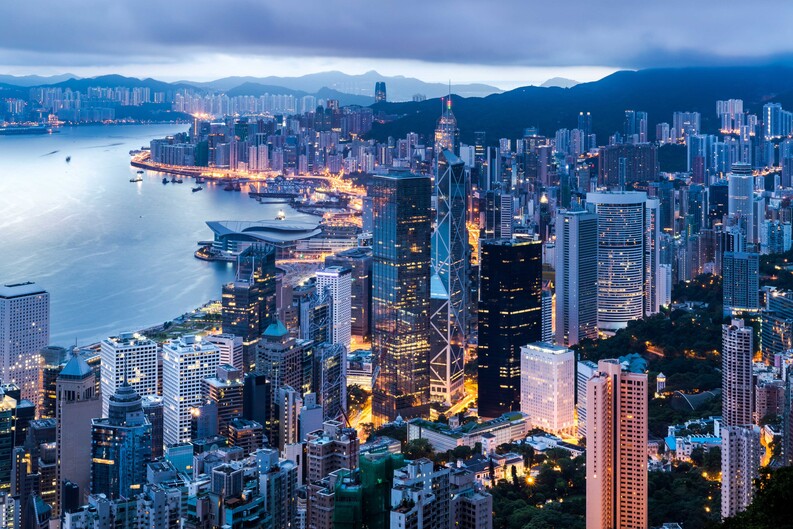
Marco Wan (B.A. Yale) is a Visiting Human Rights Fellow at the Orville H. Schell, Jr. Center for International Human Rights, a Professor of Law at the University of Hong Kong, Managing Editor of the journal Law & Literature, a Curator for the Hong Kong Lesbian and Gay Film Festival, and a published author. Wan is a scholar of public law and humanities whose work explores the intersection of human rights law and identity through the lens of culture.
Q: What have you been working on as a fellow?
Marco Wan: I've been working on a book that takes Hong Kong as a case study for thinking about LGBTQ+ rights culturally and transnationally. The book is about different forms of rights advocacy. Very often, when people think about rights, they think of the courts. What I’m trying to do in this project is think about rights advocacy more holistically, in the wider cultural context. For instance, one section of the book is on “visual advocacy,” or fighting for rights through film. I'm interested in why that's done, how that's done, and what some of the problems of using an art form like film to advocate for rights might be.
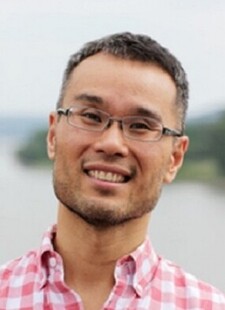
The book also involves thinking about how legal concepts travel and circulate around the world. There are lots of court cases around marital rights for same sex couples in Hong Kong, and they didn't come out of nowhere. One influence was the Supreme Court case here in America, Obergefell v. Hodges, which was reported all over the news. The case had an international impact. There’s a global dimension to marriage equality, and I’m interested in how a concept like that travels around the world. How does marriage equality interact with local traditions and ideas about marriage? To what extent do these local traditions then change the concept of marriage itself?
Q: Why are you interested in LGBTQ rights through the lens of cinema and the global discourse that you’ve described?
MW: The most immediate spark was a court judgment around marriage and trans people in the Court of First Instance in Hong Kong. The question the court addressed was this: can a post-operative male-to-female trans person marry in their authentic gender? The court said no. One of the reasons why the court said no was that it saw marriage as an unchanging institution and implied that if it allowed trans people to marry, then it would be overthrowing millennia of conjugal orthodoxy. But marriage is an evolving institution. In the 18th century, for instance, there was a doctrine of Coverture, under which women lost their legal identity after they married.
To say that marriage is this unchanging, monolithic institution — and to say this trans person can't marry on those grounds — seemed ahistorical and so didn’t seem compelling. I started writing specifically about the dynamics of that judgment, and it grew from there. My academic interest in LGBTQ+ issues began in response to this judgment.
In regard to law and film, I published a book, Film and Constitutional Controversy: Visualizing Hong Kong in the Age of ‘One Country, Two Systems,’ a couple of years ago. There was a sense in which the language of law didn’t quite reflect why these cases were so culturally significant, and why they resonated so widely in Hong Kong society. So, I started wondering where else one might look, and one fruitful site of inquiry turned out to be cinema. It’s not an accident that, from the 1980s to the present day, there were so many films about law, including courtroom dramas and documentaries. I am interested in how the language of cinema expresses those kinds of wide resonances or captures those wider ramifications in a way that the language of law doesn’t.
Q: Could you please describe your involvement with the human rights workshop at Yale Law School this semester?
MW: The theme of the workshop this year was human rights and the arts. It’s been really fantastic. There’s a different speaker once every two weeks, including a poet, a documentary filmmaker, and a sculptor — we went to her studio; her work is amazing. The two visiting fellows this year took part in the seminars. I gave a paper and ran a discussion session. What I love about that workshop is, first of all, the different international perspectives — the students bring perspectives from different cultural and legal traditions. I also love the open-ended inquiry into the question of how the arts and human rights intersect. The course doesn’t begin with one vision of how they might come together; it leaves it open as a question. And, over the course of the semester, we think about possible answers. With some art forms, there could be an element of advocacy, such as using documentary films to push for rights. Other genres, such as poetry, may attempt to articulate the trauma of rights violation. It’s a very wide-ranging and productive conversation.
Q: In addition to your involvement with the human rights workshop, have there been any aspects of your project here as a fellow that have surprised you?
MW: The wonderful thing about research is that you’re never entirely sure where it's going to take you. One of the great things about spending time at a place like Yale Law School is that you have these great conversations that can spark new thoughts. I had really thought about the book I’m writing at the Schell Center as a Hong Kong project. Over the course of the semester, I have come to think more transnationally about LGBTQ+ rights and culture. Although that’s not entirely surprising — I think I've been going in that direction for a while — there were certain things that crystallized for me.
Q: How is your first book, Masculinity and the Trials of Modern Fiction, related to your work at the Schell Center?
MW: Even though Masculinity and the Trials of Modern Fiction was about a different historical period and a different cultural context, I think my attempt to approach law, gender, and sexuality in a wider cultural and political context is something that has carried through into my current project.
Q: Where do you see intersections between your first and second book, which you’ve been focused on throughout your fellowship?
MW: I think research is always driven by our personal experiences and interests. I love reading novels. That was really why I began investigating how they were read in the courtroom in my first project. The second project began after I moved to Hong Kong. I'm from Hong Kong originally, and I lived through a lot of the constitutional controversies I discuss in the book. Some of them I lived through as a child. The book was an opportunity to think through those events with historical hindsight. The law defines us, and we define it, and I wanted to investigate how that happens.
Q: What sorts of courses do you teach in Hong Kong? Will the courses that you teach reflect any of the themes you’ve been working on as a fellow here?
MW: I teach a range of courses in Hong Kong. I'm going to be teaching law and film next semester. I also teach a course on gender, sexuality, and law. I'm sure that some of the thinking about these themes will filter through.
Q: If you’d like to share, what is next for you following your fellowship at the Schell Center?
MW: I’ll be returning to teach law at the University of Hong Kong. There, I’m working on two projects. One is on this book, and another is on law and literature in a global frame. While I’ve been here, I’ve been writing on that as well. I hope to be able to continue the conversations that I’ve been having here.
